KYC Compliance Checker
Check if your crypto exchange is regulated. Using unregulated platforms can lead to sudden shutdowns, loss of funds, and legal consequences.
Enter an exchange name to see if it's regulated.
By 2025, if you're still using a no-KYC crypto exchange, you're playing with fire. Authorities around the world aren't warning anymore-they're shutting platforms down. Hard. No second chances. No fines you can pay your way out of. Just complete takedowns, criminal charges, and frozen assets.
What Exactly Is a No-KYC Exchange?
A no-KYC exchange lets you trade crypto without proving who you are. No ID, no selfie, no address verification. Sounds convenient, right? But that convenience comes at a cost: these platforms became magnets for fraud, money laundering, and sanctions evasion. Criminals loved them. Regulators hated them. And by 2025, the balance had tipped hard in favor of enforcement.These exchanges didn’t just ignore rules-they actively avoided them. Platforms like KuCoin, BitMex, and Paxful operated offshore, targeting users in countries like India, the U.S., and the U.K., while refusing to register or report transactions. They claimed they were “decentralized” or “not based anywhere,” but when billions in suspicious funds flowed through, regulators stopped caring about technicalities.
India’s Crackdown: A Turning Point
In early 2025, India’s Financial Intelligence Unit (FIU-IND) sent shockwaves through the crypto world. They issued notices to 25 offshore exchanges, naming names: Huione, Changelly, BitMex, and others. These platforms weren’t just unregistered-they were actively serving Indian users without any legal footing.Under the Prevention of Money Laundering Act (PMLA), any service handling virtual digital assets in India must register with FIU-IND. It doesn’t matter if the company is based in Seychelles or the Cayman Islands. If Indian users are trading on it, it’s subject to Indian law. The result? Apps were pulled from Google Play and Apple App Store. Websites were blocked. Payment processors cut them off.
For users, this meant sudden loss of access. Some had thousands in assets stuck on platforms that vanished overnight. No customer support. No refunds. Just silence.
KuCoin and BTSE: The Fall of Giants
KuCoin was once one of the biggest no-KYC names in crypto. In 2024, the U.S. Department of Justice filed criminal charges against its founders for operating an unlicensed money transmission business. The DOJ said KuCoin received over $5 billion in criminal funds. U.S. users accessed it freely, even though the platform had explicitly blocked Americans. That didn’t matter. The law saw through it.By September 2025, KuCoin was shut down in the Seychelles after the government passed new licensing rules for virtual asset providers. They didn’t fight. They fled-to the Turks and Caicos Islands. A jurisdiction with almost no oversight. But that’s not a long-term fix. Banks won’t touch them. Payment partners won’t work with them. And every major exchange now checks where their partners are based.
BTSE followed the same path, relocating to Costa Rica. But relocation doesn’t erase past violations. The New York Attorney General already fined KuCoin $22 million. The CFTC has ongoing civil cases. These aren’t just fines-they’re reputational death sentences.

Why Regulators Are Winning
It’s not just about punishing bad actors. It’s about changing the entire system. In 2023, only 85% of centralized crypto exchanges had full KYC. By late 2025, that number jumped to 92%. Why? Because the cost of non-compliance became unbearable.Banks are cutting ties. Card networks like Visa and Mastercard won’t process transactions for unverified exchanges. Advertisers won’t run ads on them. Affiliate programs ban them. Even crypto influencers avoid promoting them. The ecosystem has turned against no-KYC platforms.
And the data backs it up. A 2025 CipherTrace report showed crypto fraud dropped 38% in markets where KYC enforcement was strong. Institutional investors-hedge funds, family offices, even pension funds-now refuse to touch exchanges without KYC. Sixty-seven percent say KYC is a dealbreaker. That’s not opinion. That’s market reality.
What Happens to Your Money on a Shutdown Exchange?
If you held crypto on a platform that got shut down, you’re out of luck. There’s no FDIC insurance. No government bailout. No legal recourse. Once the site goes dark and the app disappears, your assets are locked-or worse, stolen by insiders.Some users tried withdrawing before the shutdown. Others didn’t. Many assumed their coins were safe because they were “on the blockchain.” But here’s the truth: if you don’t control the private keys, you don’t own the coins. Exchanges hold them. And when they’re raided or frozen, you lose access.
There’s no recovery process. No hotline. No email response. Just a dead website and a fading memory of what you once had.
The New Normal: Fast, Easy KYC
The myth that KYC is slow and invasive is dead. In 2023, verification took an average of 7 minutes. Today, it’s 3.5 minutes on major platforms like Binance, Coinbase, and Kraken. You upload a photo ID. Take a selfie. Done. Some even use AI to auto-verify in under 90 seconds.And the security benefits? Real. No more fake accounts. No more mule networks draining wallets. No more laundering through 10 different wallets to hide the trail. KYC doesn’t just protect the system-it protects you.
Even in the U.S., where privacy is a cultural value, 58% of crypto users now prefer platforms that require KYC. Why? Because they trust them more. They feel safer. They know if something goes wrong, there’s a legal path to follow.
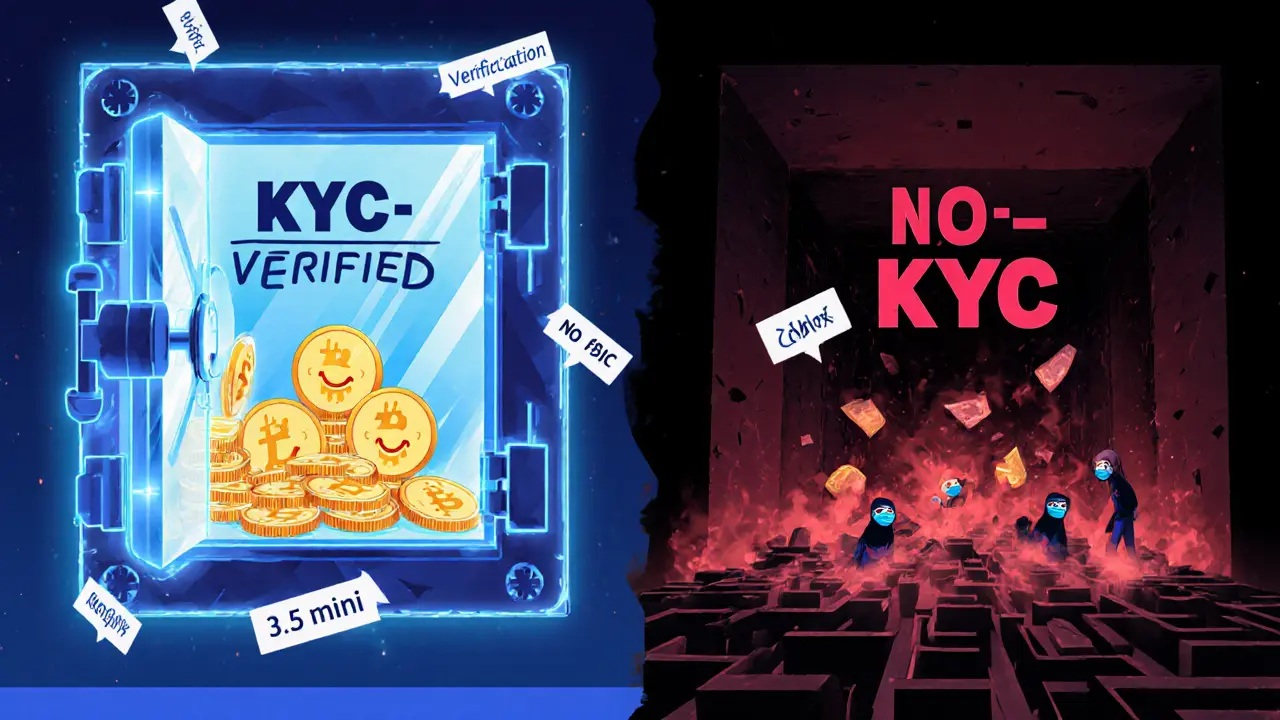
Where Are the No-KYC Exchanges Now?
They’re hiding. In the Turks and Caicos. In Costa Rica. In Panama. In places with no extradition treaties, no financial transparency, and no cooperation with global regulators.But here’s the catch: those places are becoming dead ends. Financial institutions won’t open accounts for them. Stablecoin issuers won’t partner with them. Payment gateways like Stripe and Adyen won’t touch them. Even decentralized finance (DeFi) protocols are starting to blacklist transactions from known no-KYC exchanges.
Platforms like Bitunix still report $1.8 billion in daily volume, but they’re operating on borrowed time. Regulators are watching. Interpol is tracking. The next shutdown won’t be a warning. It’ll be an arrest.
The Bigger Picture: Regulation Isn’t the Enemy
Some say regulation kills innovation. But the truth? Unregulated chaos kills trust. And without trust, crypto can’t scale.The biggest crypto failures in history-Terra, FTX, Celsius-weren’t killed by regulation. They were killed by lack of oversight. No KYC meant no accountability. No audits meant no transparency. No compliance meant no consequences.
Today’s crackdowns aren’t about controlling crypto. They’re about making it sustainable. They’re about protecting everyday users from scams. They’re about making crypto a real part of the global financial system-not a wild west.
The exchanges that survived are the ones that adapted. The ones that built compliance into their DNA. The ones that made KYC fast, simple, and secure.
What You Should Do Now
If you’re still using a no-KYC exchange, stop. Today. Don’t wait for a shutdown. Don’t hope you’ll get lucky. Move your funds to a regulated platform. One that’s licensed, transparent, and has a track record of compliance.Check if your exchange is registered with:
- FinCEN (U.S.)
- FIU-IND (India)
- Financial Conduct Authority (U.K.)
- AMF (France)
- Financial Services Agency (Japan)
If they’re not, they’re not safe. And safety isn’t optional anymore.
The era of anonymous crypto trading is over. Not because governments are evil. But because the system finally caught up with the criminals. And you don’t want to be caught in the crossfire.
Are no-KYC crypto exchanges completely illegal?
No, they’re not illegal everywhere-but they’re illegal in every major economy. If you’re in the U.S., India, U.K., EU, Canada, Australia, or Japan, using or operating a no-KYC exchange violates local law. Even if the exchange is based offshore, regulators can block access, freeze bank accounts, and prosecute users who knowingly use them for large transactions. Ignorance isn’t a defense anymore.
Can I still trade crypto without KYC?
You can, but it’s risky and getting harder. Peer-to-peer (P2P) platforms like LocalBitcoins or Paxful still allow some anonymous trades, but they’re under heavy scrutiny. Decentralized exchanges (DEXs) like Uniswap don’t require KYC-but they’re not exchanges in the traditional sense. You’re trading directly on-chain, with no customer support, no chargebacks, and no protection. If you send crypto to the wrong address, you lose it forever. And if you use a DEX to launder funds, you’re still breaking the law.
Why do exchanges like KuCoin keep relocating?
They’re chasing regulatory arbitrage-trying to find places with no rules. But that’s a short-term game. As global coordination improves-through groups like FATF and the Financial Intelligence Units-these jurisdictions are becoming isolated. Banks won’t work with them. Payment processors won’t touch them. Advertisers won’t fund them. Eventually, they become financial ghosts: trading volume drops, users leave, and the platform collapses under its own weight.
Is KYC a privacy violation?
It’s not. KYC doesn’t mean giving up your privacy. It means proving you’re not a criminal. Legitimate exchanges use encrypted, secure systems to store your ID. They don’t share it with third parties unless legally required. In fact, using KYC protects your account from hacks and impersonation. Without it, anyone can open an account in your name-and drain your funds.
What happens if I used a no-KYC exchange in the past?
If you only traded small amounts and never moved funds from illegal sources, you’re likely fine. Regulators focus on large-scale operators and repeat offenders. But if you deposited funds from known scams, darknet markets, or ransomware payments, you could face scrutiny. The safest move? Move your remaining assets to a compliant exchange and avoid further use of unregulated platforms.
Will governments ever allow true anonymity in crypto?
Unlikely. The global financial system is built on identity. Banks, insurance, taxes, loans-all require knowing who you are. Crypto can’t exist in isolation forever. The future isn’t fully anonymous. It’s privacy-preserving but accountable. Think: verified identity, encrypted data, and selective disclosure-not total secrecy.
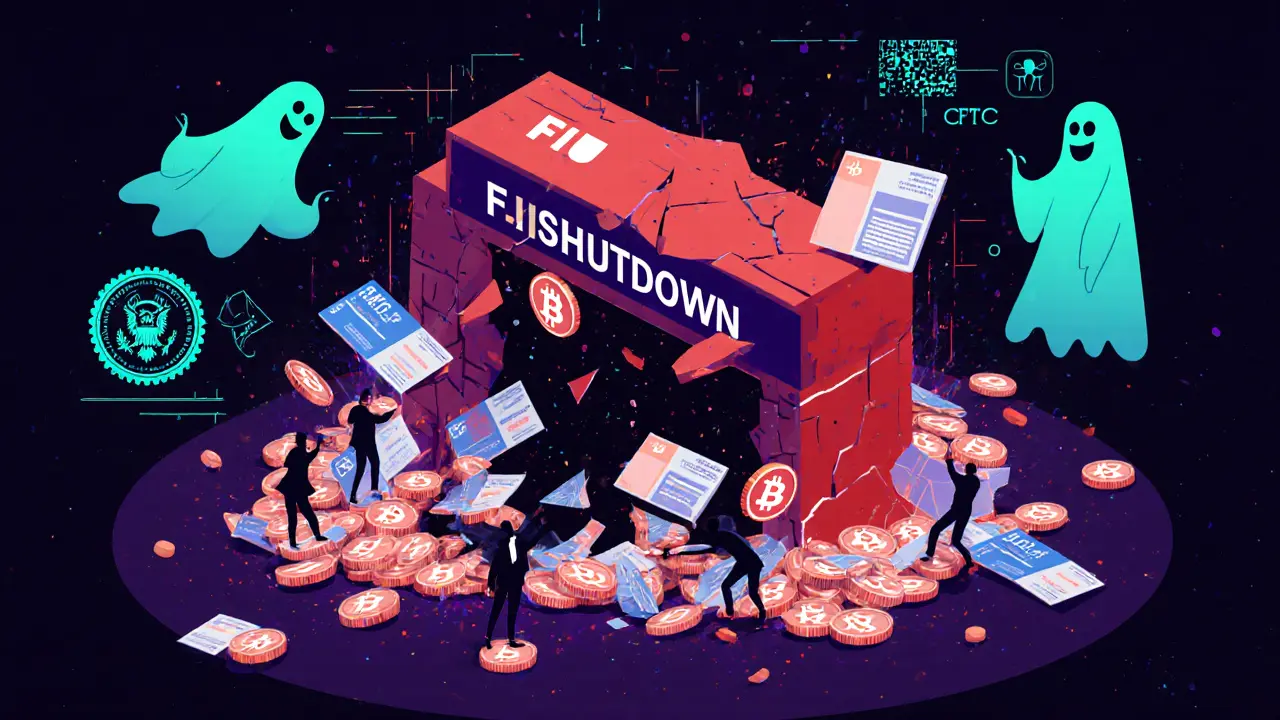
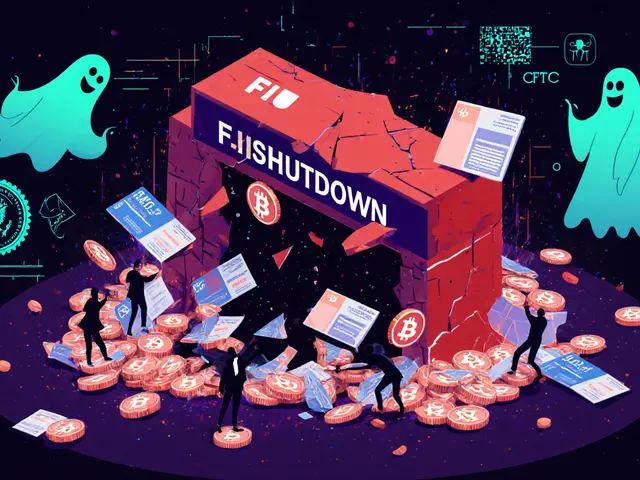
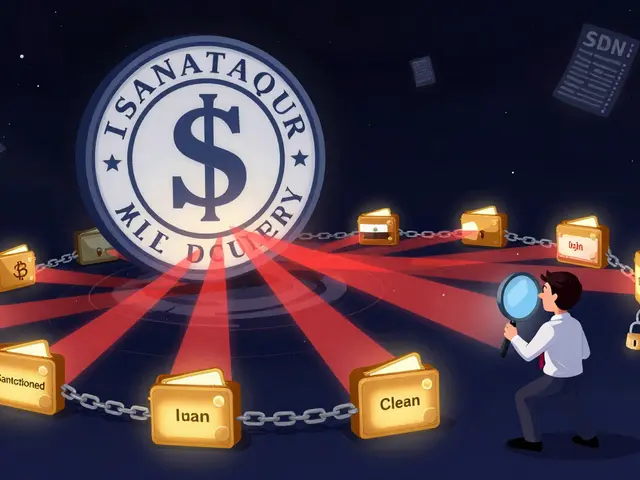



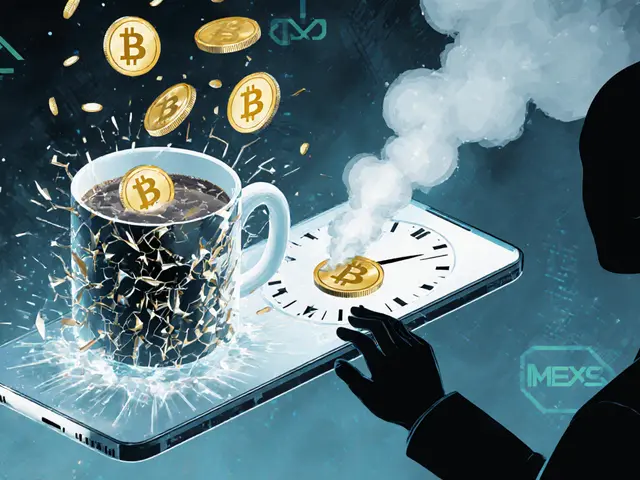

Angel RYAN
November 28, 2025 AT 07:37I get why people hate KYC-it feels like giving up control. But honestly? I’d rather have a platform that doesn’t vanish overnight. I lost $3k on a no-KYC site back in 2022. No refund. No email reply. Just silence.
Now I use Kraken. Verification took 90 seconds. I sleep better.
Regulation isn’t the enemy. Chaos is.
stephen bullard
November 29, 2025 AT 06:55It’s funny how we romanticize anonymity in crypto like it’s some kind of digital freedom. But freedom without responsibility is just anarchy. And anarchy doesn’t protect you-it just makes you a target.
Think about it: if you can’t prove you’re not laundering money, why should anyone trust you with their assets? The system isn’t broken-it’s evolving. The no-KYC crowd is clinging to a ghost.
Real innovation doesn’t hide. It adapts. And the ones who did? They’re thriving. The rest? Just waiting for their site to go dark.
SHASHI SHEKHAR
December 1, 2025 AT 00:41Bhaiya, I’m from India and let me tell you-FIU-IND’s crackdown was a GAME CHANGER 😤
My cousin had 1.2 lakh INR stuck on Huione when it got blocked. No customer service. No way to contact them. Just a white screen. He cried for a week.
Now? He’s on WazirX. KYC took 4 mins. He even got a free $5 in BTC as a welcome bonus 🤑
And guess what? His wallet is safer now than when he was ‘anonymous’. No one can hack his account because they can’t even open one in his name without ID.
People say KYC is surveillance? Nah. It’s protection. Like seatbelts. You don’t need it until you crash. Then you’re glad you had it.
Also-BTSE moving to Costa Rica? Lol. Banks won’t touch them. Payment gateways won’t work. They’re already dead money. Just don’t know it yet 🤡
And yeah, I still use DEXs for small swaps-but only if I’m sending to MY wallet. Never to an exchange. That’s the real rule: Own your keys. Or lose your coins. Simple.
Vaibhav Jaiswal
December 1, 2025 AT 02:02Bro. I used to run a no-KYC exchange. Not even kidding. We were making bank. Until one day, our payment processor just… vanished. No warning. No email. Just gone. Like we never existed.
Then the bank accounts froze. Then the domain got seized. Then the whole team got a visit from Interpol’s crypto unit. Two guys in suits. No badges. Just a tablet with our transaction logs.
We thought we were clever. We weren’t. We were just slow.
Now I work at a regulated exchange. KYC? It’s automated. I don’t even see the IDs anymore. Just a green checkmark. And I get paid on time. My family doesn’t worry. I don’t wake up sweating.
Anonymous crypto was a party. Now? It’s a funeral. And nobody wants to be the corpse.
Abby cant tell ya
December 2, 2025 AT 08:46